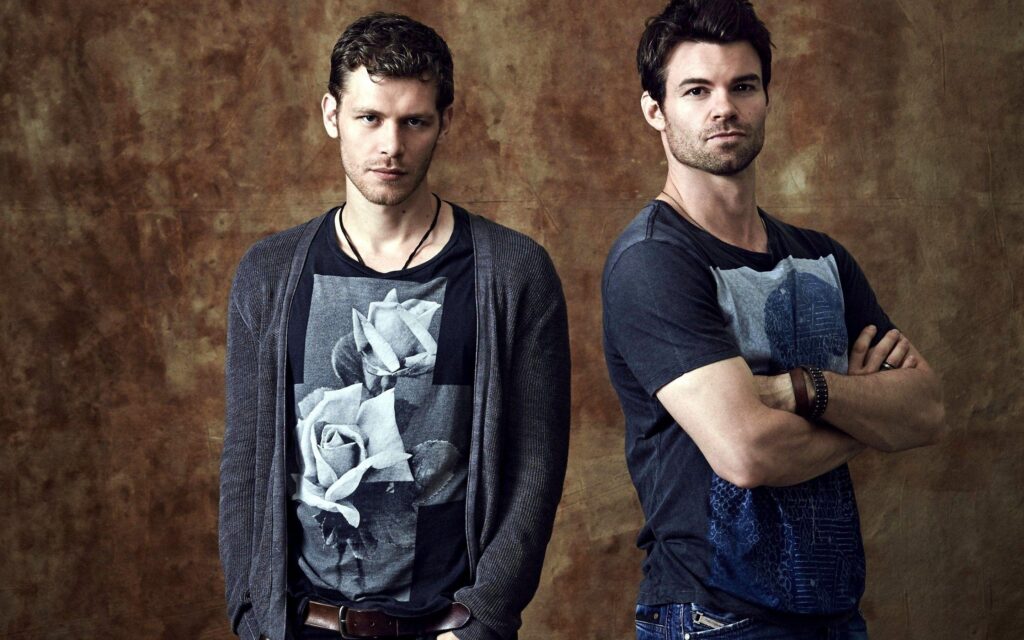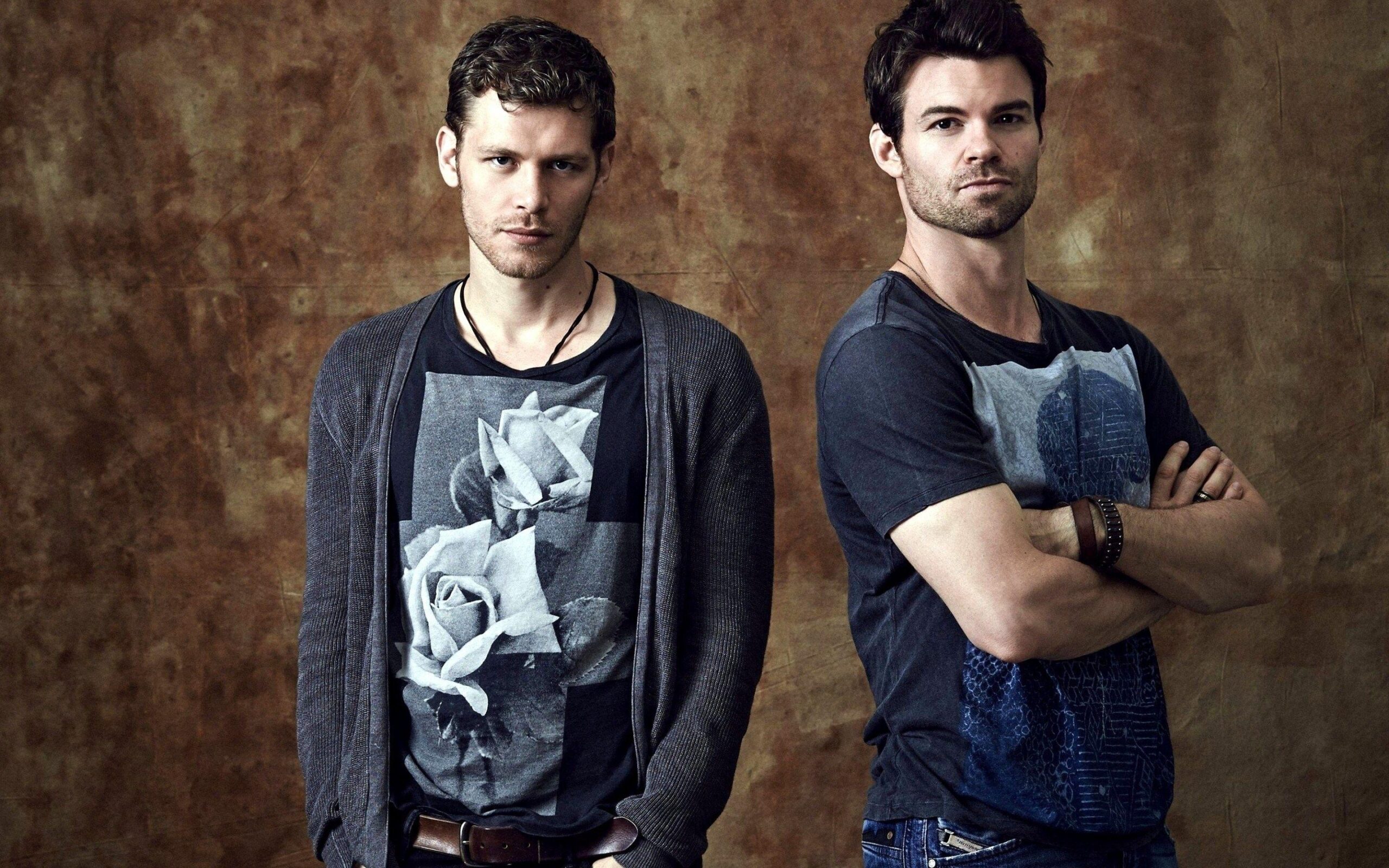
Klaus Mikaelson: The Definitive Exploration of the Original Hybrid
Klaus Mikaelson, a name synonymous with power, complexity, and a compelling blend of villainy and vulnerability, remains one of the most captivating characters in the vast landscape of supernatural dramas. More than just a vampire or a werewolf, Klaus is the Original Hybrid, a being of immense strength and deeply rooted emotional turmoil. This article delves into the multifaceted nature of Klaus Mikaelson, exploring his origins, motivations, relationships, and enduring legacy within the fictional universe he inhabits. We aim to provide the most comprehensive and insightful analysis available, offering both longtime fans and newcomers a deeper understanding of this iconic figure.
The Genesis of a Legend: Unraveling Klaus Mikaelson’s Origins
Niklaus Mikaelson’s story begins long before the events of The Vampire Diaries and The Originals. Born in the 10th century in what would become Mystic Falls, Virginia, Klaus was the son of Esther, a powerful witch, and Ansel, a werewolf. However, he was raised as the son of Mikael, a Viking warrior who sought to protect his family from the threats of the supernatural world. This hidden lineage, concealed by Esther, would later define Klaus’s existence.
The tragic death of Klaus’s younger brother, Henrik, at the hands of werewolves spurred Mikael to transform his family into the Original vampires. Esther, using a powerful spell, granted them immortality and enhanced strength but also created an insatiable hunger for blood. However, Klaus’s werewolf heritage remained dormant, a secret that Mikael would later exploit. When Klaus made his first kill as a vampire, his werewolf gene was triggered, making him a hybrid – a creature Mikael deemed an abomination.
Driven by rage and a desperate need for acceptance, Klaus confronted Esther about his true parentage, learning the truth about Ansel. Consumed by fury and betrayal, Klaus murdered his mother, triggering a curse that would haunt him for centuries. This act of patricide, combined with his hybrid nature, solidified Klaus’s reputation as a ruthless and unpredictable force.
The Hybrid Curse and the Quest for Power
The curse placed upon Klaus by Esther prevented him from fully accessing his hybrid powers. He was unable to create new hybrids, limiting his power and leaving him vulnerable. This vulnerability fueled his obsession with breaking the curse, a quest that brought him to Mystic Falls in The Vampire Diaries. His pursuit of Elena Gilbert, a Petrova doppelganger whose blood was needed for the ritual, showcased his willingness to manipulate and destroy anyone who stood in his way.
The ritual to break the curse involved sacrificing a vampire, a werewolf, and a doppelganger. While Klaus succeeded in breaking the curse, his actions had devastating consequences. His ruthless pursuit of power and his willingness to sacrifice innocent lives cemented his image as a villain. However, beneath the surface of his villainy lay a deep-seated fear of abandonment and a longing for family.
The Originals: A Family Saga of Love, Loyalty, and Betrayal
The Originals shifted the narrative focus to Klaus and his siblings, Elijah and Rebekah, as they returned to New Orleans, the city they helped build centuries ago. The series explored the complex dynamics within the Mikaelson family, revealing their shared history, their betrayals, and their enduring love for one another. Despite their constant conflicts and power struggles, the Originals were bound by a fierce loyalty and a determination to protect their family.
In New Orleans, Klaus found himself embroiled in a power struggle with Marcel Gerard, his adopted son and former protégé, who had taken control of the city. The arrival of Hayley Marshall, a werewolf carrying Klaus’s child, further complicated matters. The prospect of fatherhood forced Klaus to confront his own demons and consider a future beyond his quest for power. The birth of his daughter, Hope, became a turning point in his life, transforming him from a ruthless villain into a fiercely protective father.
The Evolution of Klaus: From Villain to Anti-Hero
Over the course of The Originals, Klaus underwent a significant transformation. While he never completely shed his darker tendencies, he began to prioritize the well-being of his family, particularly Hope. He made sacrifices, forged alliances, and even showed moments of genuine compassion. His relationship with Camille O’Connell, a human bartender and therapist, played a crucial role in his evolution, providing him with a much-needed anchor and challenging his perceptions of humanity.
Klaus’s love for Hope became his defining characteristic. He was willing to do anything to protect her, even if it meant sacrificing himself. His ultimate sacrifice in the series finale, absorbing the dark magic that threatened Hope’s life, solidified his redemption arc. While his methods were often questionable, his love for his daughter and his family ultimately defined his legacy.
The Hybrid’s Strengths: Superhuman Abilities and Enduring Appeal
Klaus Mikaelson possesses a unique combination of vampire and werewolf abilities, making him one of the most powerful beings in the supernatural world. His vampire side grants him immortality, enhanced strength, speed, and senses, while his werewolf side provides him with the ability to transform into a wolf, further augmenting his strength and agility. He also possesses a unique healing factor that allows him to recover from almost any injury.
Beyond his physical abilities, Klaus is a master strategist, a skilled manipulator, and a formidable opponent. He is centuries old, with a vast knowledge of the supernatural world and a network of allies and enemies that spans the globe. His intelligence, cunning, and ruthlessness make him a force to be reckoned with.
The Enduring Legacy of Niklaus Mikaelson
The character of Klaus Mikaelson has left an indelible mark on the landscape of supernatural fiction. His complexity, his charisma, and his compelling blend of villainy and vulnerability have captivated audiences worldwide. He is a character who defies easy categorization, a villain who is capable of love, a monster who is capable of compassion. His story is a testament to the enduring power of family, the corrupting influence of power, and the possibility of redemption.
Klaus’s influence extends beyond the screen. He has inspired countless fan theories, fan fiction, and artwork. His quotes are widely shared and debated, and his relationships with other characters continue to be analyzed and dissected. He is a character who sparks conversation, provokes emotion, and challenges our perceptions of good and evil.
The Art of Playing an Original: Joseph Morgan’s Portrayal
Joseph Morgan’s portrayal of Klaus Mikaelson is widely regarded as one of the most compelling performances in television history. He brought depth, nuance, and complexity to the character, capturing both his ruthless nature and his underlying vulnerability. Morgan’s ability to convey Klaus’s inner turmoil, his longing for family, and his genuine affection for Hope made him a truly unforgettable character.
Morgan’s dedication to the role was evident in his physicality, his voice, and his emotional range. He mastered Klaus’s distinctive accent, his menacing glare, and his subtle gestures. He also brought a surprising amount of humor to the role, often injecting moments of levity into even the darkest scenes. His performance elevated Klaus from a simple villain to a complex and multi-dimensional character.
The Story Behind the Klaus Mikaelson Character Arc
The creation of Klaus Mikaelson involved a collaborative effort between the writers, producers, and actors of The Vampire Diaries and The Originals. The character was initially conceived as a formidable antagonist, a powerful and ruthless villain who would pose a significant threat to the protagonists. However, as the writers delved deeper into Klaus’s backstory, they began to explore his motivations and his vulnerabilities.
The decision to give Klaus a family was a crucial turning point in his development. The introduction of Elijah and Rebekah added a new layer of complexity to the character, revealing his capacity for love and loyalty. The birth of Hope further humanized Klaus, forcing him to confront his own demons and consider a future beyond his quest for power.
Daggering Klaus: Understanding the Temporary Neutralization Method
One of the methods used to neutralize an Original vampire, albeit temporarily, is through the use of a silver dagger dipped in white oak ash. This process, often referred to as “daggering,” renders the Original incapacitated for as long as the dagger remains in their heart. While daggered, they are essentially in a state of suspended animation, unable to heal or use their powers.
The effects of daggering are not permanent. Once the dagger is removed, the Original will awaken and quickly recover. However, the process can be useful for containing an Original in certain situations, providing a temporary reprieve from their power. Daggering was a recurring plot device in both The Vampire Diaries and The Originals, often used as a means of manipulating or controlling Klaus and his siblings.
The White Oak Stake: The Original Vampire’s Ultimate Weakness
The only substance that can permanently kill an Original vampire is white oak. White oak trees were used in the original spell that created the Originals, making them uniquely vulnerable to it. A stake made from white oak, when driven through the heart of an Original, will result in their permanent death.
The scarcity of white oak makes it a highly coveted and fiercely guarded resource. Over the centuries, the Originals have gone to great lengths to destroy white oak trees and weapons, fearing their vulnerability. However, fragments of white oak have resurfaced throughout the series, posing a constant threat to their existence.
The Power of Family: The Driving Force Behind Klaus’s Actions
Despite his often ruthless and destructive behavior, Klaus Mikaelson’s actions are often driven by a deep-seated desire for family. His traumatic childhood, marked by abuse and betrayal, instilled in him a profound fear of abandonment and a desperate need for acceptance. This need for family manifests in his complex relationships with his siblings, his adopted son Marcel, and his daughter Hope.
Klaus’s love for his family is often expressed in unconventional ways. He is fiercely protective of them, willing to go to great lengths to ensure their safety. However, his methods are often manipulative and controlling, reflecting his own insecurities and his inability to trust others. Despite his flaws, his loyalty to his family is unwavering, making him a complex and ultimately sympathetic character.
The Original Hybrid’s Lasting Impact
Klaus Mikaelson’s journey from a feared villain to a flawed but ultimately redeemed anti-hero is a testament to the power of storytelling. His character arc has resonated with audiences worldwide, inspiring countless fan theories, fan fiction, and artwork. His legacy as one of the most complex and compelling characters in the supernatural genre is secure.
His journey also exemplifies the importance of family, the consequences of unchecked power, and the potential for redemption, even in the darkest of hearts. Share your favorite Klaus Mikaelson moments and reflections in the comments below, and continue to explore the rich and captivating world of The Vampire Diaries and The Originals.

